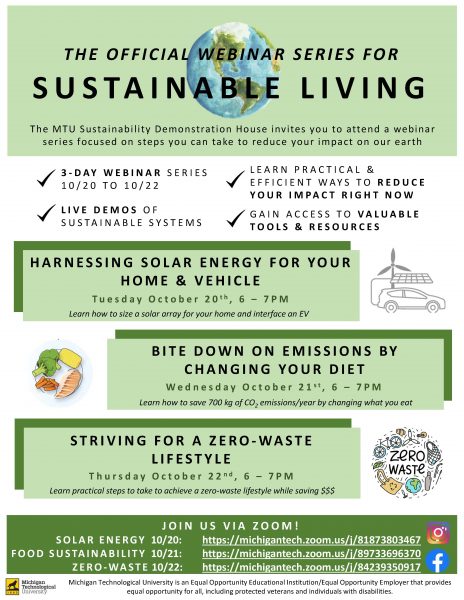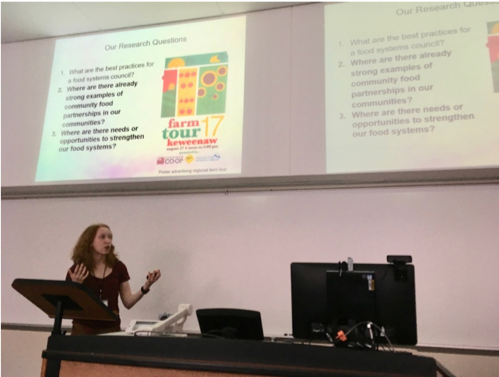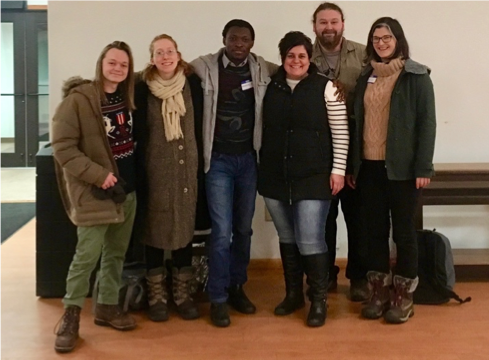Since the MTU Sustainability Demonstration House (SDH) is limited in opening the house and its activities to the public this semester, SDH is bringing the house and all of its sustainable systems to virtual viewers!
You are invited to join MTU SDH for a series of webinars centered around various aspects of sustainable living:
Tuesday, October 20th: Harnessing Solar Energy for Your Home & Vehicle Learn how to size a solar array for your home!
Join via Zoom! https://michigantech.zoom.us/j/81873803467
Wednesday, October 21st: Bite Down on Emissions by Changing Your Diet Learn how to save 700 kg of CO2 emissions per year by changing what you eat!
Join via Zoom! https://michigantech.zoom.us/j/89733696370
Thursday, October 22nd: Striving for a Zero-Waste Lifestyle Learn practical steps to take to achieve a zero-waste lifestyle while saving $$$!
Join via Zoom! https://michigantech.zoom.us/j/84239350917
You won’t want to miss out on these talks!
- View live demos of the MTU SDH sustainable systems
- Gain access to valuable tools & resources
- Learn practical and efficient ways to reduce your impact right now
Please email sdh@mtu.edu with any questions or concerns. We hope to see you there!


